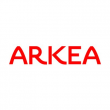T+2: Moscow’s “biggest move in 20 years”
As the Moscow Exchange launches a new liquidity incentive promotion, Sergey Sinkevich, head of DMA at Russian broker Otkritie, argues that Russia’s move to adopt T+2 settlement is the most important development in the last 20 years for the country’s capital markets.
“We’ve seen nothing like it in the last decades,” Sinkevich told Banking Technology. “Most of the Russian IPOs went to the UK in recent years because of the unsophisticated Russian settlement. That is changing fast. On 2 September, T+0 settlement will be discontinued, bringing Moscow into line with the standard in other developed markets.”
Russia’s efforts to turn Moscow into an international financial centre have been a key government focus in recent years. At the end of 2011, the RTS and MICEX exchanges were merged to create a unified Moscow Exchange. Then in November 2012, a central securities depository was established. In March 2013, the exchange started to move securities to T+2 settlement, meaning that transactions are settled two days after the trade, rather than immediately on the spot as had been the case previously. In August, the exchange began offering a monthly 60% rebate of the trading fee to firms that pay more than £255 per month in trading fees.
“Our task is to make the Russian stock market competitive in the full sense of the word, make it attractive for Russian and foreign market players,” said Russian president Vladimir Putin during a speech on financial markets in January. “It has to meet business’ demands and also be up to our new and more ambitious economic development goals.”
Cumulatively, these changes represent a significant departure for international investors. In the US, a considerable portion of the asset management community had been unable to invest in Russia due to the US 17F7 rule of the Investment Company Act of 1940, which requires custody of investment company assets with a central securities depository. The establishment of the CSD changed that, but the move to T+2 settlement removes yet another huge impediment – the need to have the cash required for a securities transaction in the account at the moment of purchase.
However, there are also problems. Russia is the world’s seventh biggest economy according to statistics provided by the World Bank, yet the relative lack of a domestic investor base has left the country behind its neighbours. Whereas other former-Soviet block countries such as Poland have benefited from direct state intervention in the early 1990s that created a huge domestic pension market, Russia’s domestic base is tiny by comparison. Only 1.5 million out of a total population of 142 million participate in the stock market, with pensions accounting for just 4% of Russian GDP.
“A domestic investor base is the most important thing any market needs,” said Sinkevich. “Russia will have to develop domestic market, because it creates captive money and a predictable market. Poland is a good example of how the state can influence the domestic investor.”
Sinkevich was born in Novorossiysk, Russia. After studying economics at New York University, he joined UBS and became an analyst. In 2010 he joined MICEX, now part of the Moscow Exchange, before joining Otkritie in February 2013.
“Otkritie will be successful because it has a story to tell,” he said. “The Russian market is a door opener for us, especially in North America, which is the next frontier for us at the moment. We want to be an international player, and our expertise is Russia.”
Traditionally, one of the biggest challenges for the Moscow market has been the competition from the London Stock Exchange’s International Order Book, which primarily consists of listings from Russian companies. The country’s obvious attraction is its energy market, including oil and gas, which have contributed to massive Russian companies such as Rosneft and Gazprom – yet many of these companies have chosen to raise their IPOs in London. Russia’s home market has seen some IPOs in recent years, including Sberbank, VTB and the Moscow Exchange itself, but the tug of war over listings is far from over.
According to Sinkevich, the move to T+2 settlement in Moscow will help to reassure investors. Pointing to the migration of some 50 Russian securities onto T+2 settlement at the Moscow Exchange in late July, he says that Russia will soon be on the same page as Germany, which has used T+2 for some years, and France, the Netherlands and Belgium, where Euroclear has just announced it will move to T+2 settlement from October next year.
“End investors want to use infrastructure that is cost competitive and safe,” he said. “T+2 should make transactions cheaper and boost liquidity. At the same time, Moscow Exchange is adopting risk management standards, and clearing brokers are being recognised as legitimate parties. That should help to win back business to Russia from the UK.”












































